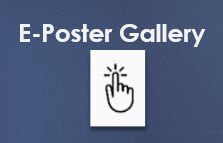
Central European Summer Time CEST/GMT+2
Recorded sessions on demand will be available 24 hours after the session ends
Vaccines in Europe – concepts and controversies when tackling preventable infections
Overcoming vaccine hesitancy
Abstract
Abstract Body
Childhood vaccine hesitancy (VH) is a challenge for healthcare professionals (HCPs) worldwide. The WHO defined VH as 'a delay in acceptance or refusal of vaccines despite the availability of vaccine services’ which often involves a range of factors and processes linked to both parental and health professional’s knowledge and beliefs. Our recent meta-synthesis identified the nature of the parental factors involved in VH as a set of linked themes: risk conceptualization, mistrust, alternative health beliefs, philosophical views and responsibility and information. However, HCPs appear to have a role in VH, maybe by failing to establish a positive professional relationship with the parents. This seems linked to how HCP’s exchange information and negotiate with patients within a spirit of cooperation and mutual respect. According to our recent Grounded Theory study, discordant interplays among HCPs and receivers (parents for the matter of this presentation) are the results of a neglected relationship. While parents desire to do what they feel right for their child, the HCPs' approach to this challenging situation may fail to acknowledge parents' fears. In this complex context, we propose several organizational actions and educative paths/pedagogy that minimise the risks of both VH and discordance. This involves effective communication between HCPs and parents in an atmosphere of mutual respect. As for pedagogy, for HCPs, training courses in qualitative health research (QHR) methodology provide innovative strategies for improving relational skills. Indeed, QHR can inform HCPs on how to interact with parents, enhancing the level of humanization of care and communication-related strategies.

